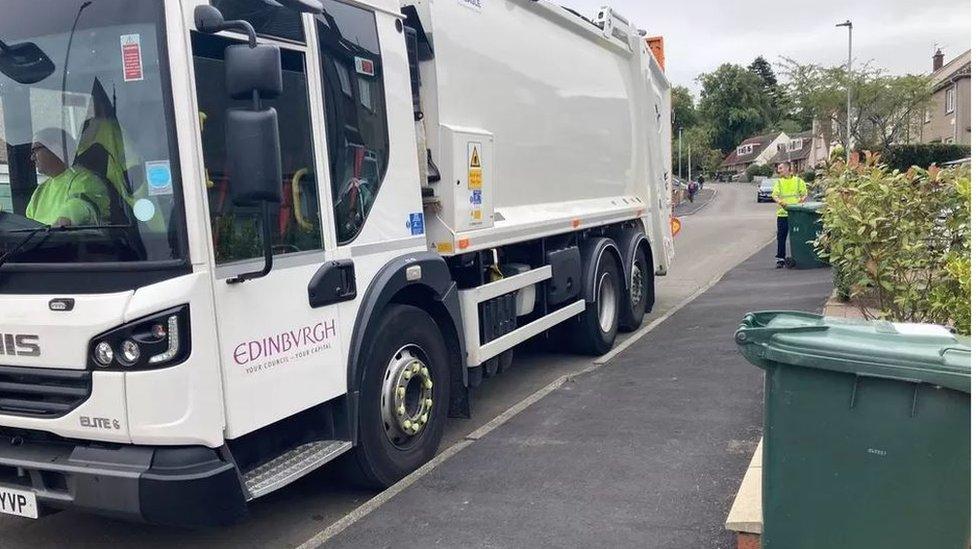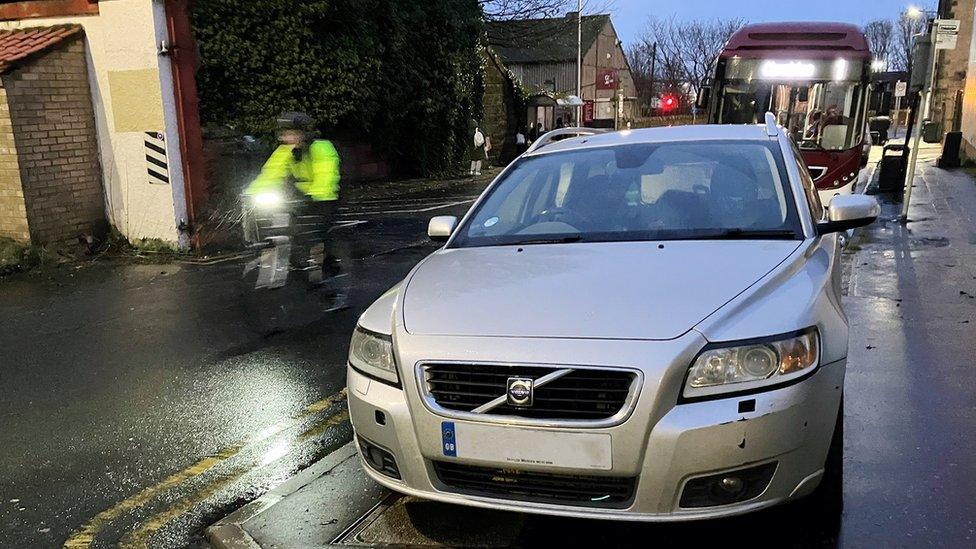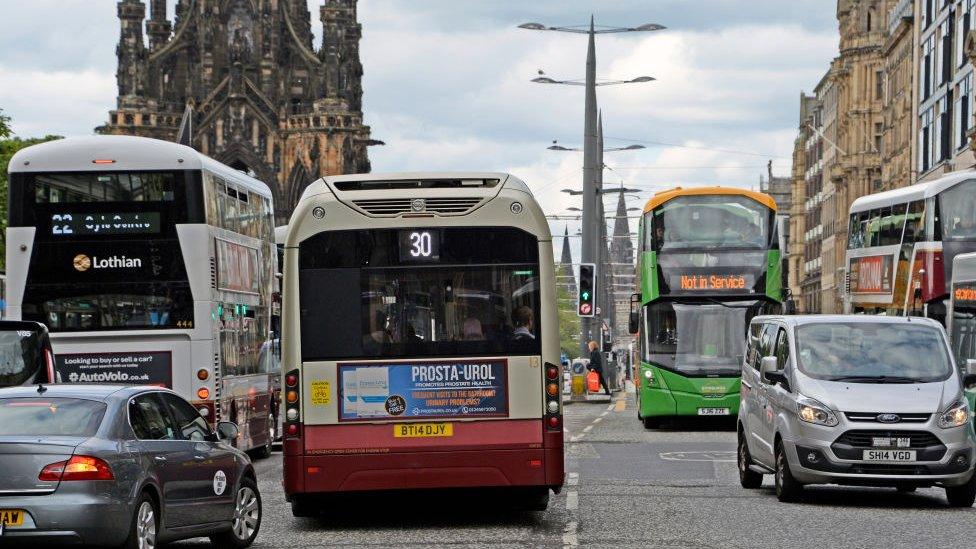Edinburgh city council to spend £56m on low emission vehicles
- Published

Some bin lorries are set to be replaced under the plans
Edinburgh city council will spend £56m replacing hundreds of its vehicles to meet new environmental rules.
The local authority's fleet of bin lorries, road sweepers and civic cars will need to comply with the city's new Low Emission Zone (LEZ).
More than 280 vehicles will be replaced by June 2024 in order to avoid fines.
The council said vehicles that cannot be directly replaced, such as HGVs, will have their engines swapped for LEZ-compliant versions.
It hopes more than a quarter of its fleet would be "electrified" after the switch.
The LEZ will ban the most-polluting vehicles from driving into the city centre, with rule-breakers fined £60.
It will commonly apply to diesel vehicles registered before September 2015 and petrol vehicles registered before January 2006.
A report to the city's finance and resources committee said the investment would help to reduce carbon emissions for the council's 2030 net zero target.
Net zero targets
It stated: "The vehicles listed for replacement will support key frontline services across the council.
"If approved, 27% of the council's fleet will have been electrified."
The council said it hoped to raise around £2m from the disposal of existing vehicles and £3.2m from cash reserves, but around £51m would need to be borrowed to fund the overhaul.
In total, about 1,000 vehicles are due to be replaced to meet future net zero targets.
The report added: "There are potential external funding opportunities that the council will continue to explore.
"More recently, these funding opportunities have been aimed at increasing electric vehicle charging infrastructure, however there are still some pots available for vehicle replacement and upgrades.
"If any such funding bids are successful, this will reduce the amount of capital funding that is required from the council."
- Published16 November 2023

- Published31 May 2022

- Published14 April 2022
